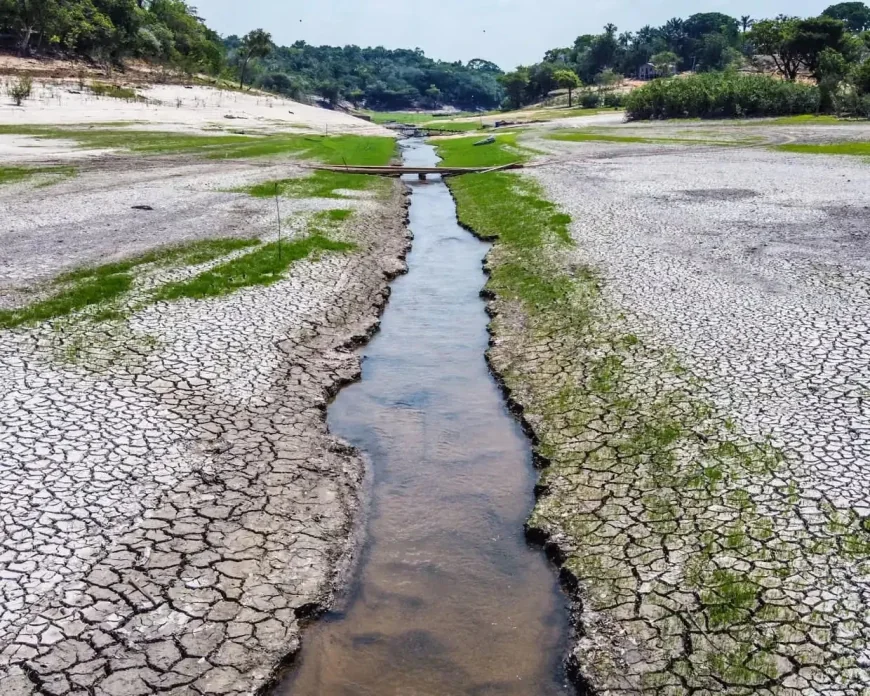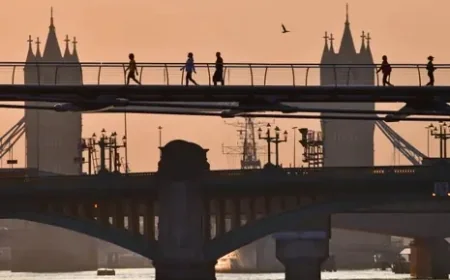Researchers say there's still a chance to return to the 1.5°Cclimate target
The report calls for increasing the use of renewable energy and electrification in key sectors to limit excessive global temperature rise.

Researchers say there's still a chance to return to the 1.5°C climate target.
The report calls for increasing the use of renewable energy and electrification in key sectors to limit excessive global temperature rise.
A new assessment argues that if governments take concrete action on greenhouse gas emissions, the world still has a chance to avoid the worst effects of climate disruption and return to the 1.5°C target.
The Climate Analytics report says government targets are inadequate and need to be revised rapidly, and calls for rapidly increasing the use of renewable energy and electrification in key sectors, including transport, heating, and industry.
Ahead of the COP30 UN climate summit, which begins on Monday, world leaders are meeting in Belém, a small city near the mouth of the Amazon River in Brazil, on Thursday and Friday to discuss the climate crisis.
For the past two years, temperatures have exceeded the 1.5°C limit on global temperature rise above pre-industrial levels set in the 2015 Paris Agreement.
Researchers say there is still a chance to return to the 1.5°C climate target.
The report calls for increasing the use of renewable energy and electrifying key sectors to limit the extremes of global temperature rise.
A new assessment argues that if governments take concrete action on greenhouse gas emissions, the world still has a chance to avoid the worst effects of climate disruption and return to the 1.5°C target.
The Climate Analytics report states that governments' targets are inadequate and need to be revised rapidly, and calls for accelerating the use of renewable energy and the electrification of key sectors, including transport, heating, and industry.
Ahead of the COP30 UN climate summit, which begins on Monday, world leaders are meeting on Thursday and Friday in Belém, a small city near the mouth of the Amazon River in Brazil, to discuss the climate crisis.
Over the past two years, temperatures have risen by more than 1.5°C above pre-industrial levels, as set in the 2015 Paris Agreement.
A report by the United Nations Environment Programme (UNEP) published this week states that current plans by national governments will lead to a temperature rise of about 2.3 to 2.5 degrees Celsius, a level that scientists say will significantly increase extreme weather and cause catastrophic damage to some of the world's major natural systems.
Researchers at the Climate Analytics Group say their roadmap can ensure a temperature peak of 1.7°C before 2050. They say this can be reduced to 1.5°C by the end of the century by phasing out fossil fuels and using carbon removal technologies to absorb carbon dioxide from the atmosphere.
"We must make every effort to limit the time spent above this safety threshold to reduce the risk of irreversible climate damage and catastrophe if we exceed the tipping points." At COP30, all countries are expected to submit national climate plans under the 2015 Paris Agreement. These are called Nationally Determined Contributions (NDCs), which aim to set carbon reduction targets and measures to achieve them. But less than half of countries have submitted NDCs before COP30, and many of those submitted are inadequate.
Analysis by UNEP found that current NDCs will result in global temperatures rising by about 2.5°C compared to pre-industrial levels, and could reach 2.8°C, a level that will accelerate potentially irreversible changes.
According to the UN, current NDCs will only achieve about 10% carbon reduction by 2035.
According to Climate Analytics, globalAccording to Climate Analytics, global emissions would need to fall by about a fifth by 2030, compared with 2019 levels, and by 11% a year in the 2030s to limit warming to 1.7C. Methane would need to be cut by 30% by 2035.
Neil Grant, a senior expert at Climate Analytics, said: “The last five years have cost us precious time in the critical decade of climate action. However, they have also seen a revolution in renewables and batteries, which have shattered records across the globe. Riding this tailwinds can help turbocharge our clean energy future and catch up on lost time.”
What's Your Reaction?
 Like
0
Like
0
 Dislike
0
Dislike
0
 Love
0
Love
0
 Funny
0
Funny
0
 Angry
0
Angry
0
 Sad
0
Sad
0
 Wow
0
Wow
0












































